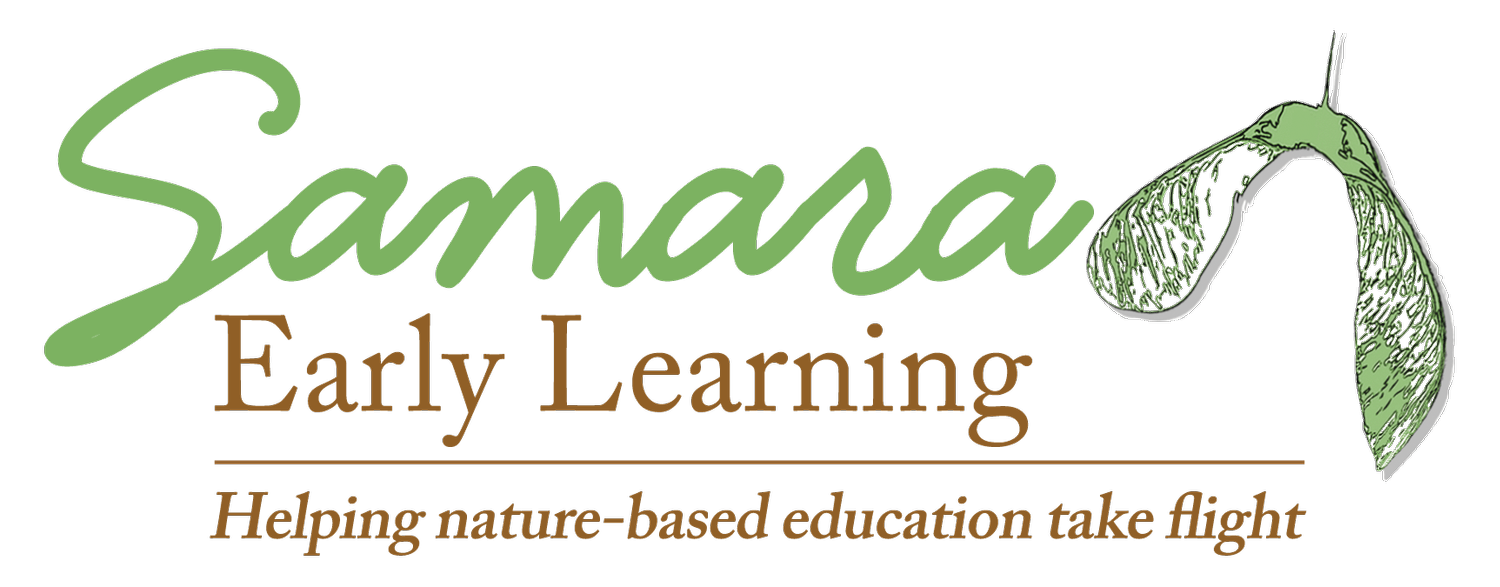Freebies!
Free resources related to nature-based early childhood education

Reimagining the Roles of Nature-based Teachers
In this webinar, Drs. Rachel Larimore and Claire Warden discuss the many roles that nature-based educators play in implementing nature-based pedagogy in the early years.

The Outdoor Classrooms podcast: Interview with Dr. Rachel Larimore & Dr. Claire Warden
In this podcast, the host of Outdoor Classrooms speaks with Dr. Rachel A. Larimore & Dr. Claire Warden to explore their groundbreaking perspectives on weaving nature into educational practices to spark curiosity and engagement.

Naturally Teaching Elementary Science podcast: Interview with Dr. Rachel Larimore
In this podcast, the host of Naturally Teaching Elementary Science hosts Dr. Rachel A. Larimore to discuss the NAture-Based Education Rating Scales (NABERS), and the important and varied roles teachers play in implementing and maintaining quality programs.

Porch play chat: The nature continuum
In this video, Dr. Rachel Larimore discusses that nature-based education is a continuum. It is not all or nothing.

It's science too!
Natural history is important science. Natural history is the science children are engaging with every day in nature-based programs!

Nature-Based Emergent Curriculum: The Power of Place for Planning
This recorded edWebinar, presented by Dr. Rachel Larimore,

Experiences rather than activties
An "activity” is a very teacher-led, scripted interaction with a clear structure and intended outcome. Whereas an "experience" is an event or occurrence which leaves an impression on someone.

Child-led play
One goal of nature-based early childhood education is to support children’s holistic development. The way we do this is by emphasizing two key elements of early childhood education: 1) Play-based and 2) Child-led.

We’re not separate
The core teaching of Nature-based early childhood education (NbECE) is that the learning isn’t just IN nature or ABOUT nature, but is a relationship between nature and the child. That’s why we use the phrase “learning WITH nature.”

Planning for Earth Day
Even on special days like Earth Day we want to keep things as play-based and child-led as possible.

Enjoying the easy weather
As the weather gets “easier,” I encourage you to spend even more of your day outdoors. Establishing a clear routine and a rich learning space will make the experience much, much better for everyone!

Evaluating Natureness: Collection of practices
Can we call ourselves nature-based?
I often hear this from early childhood educators. My response? Nature-based education is a collection of practices that prioritize children’s experiences learning with nature.

Abundance of Distractions
Distractions only increase as we move through the year. There will slowly be more bird calls, more insects, more buds popping and forming into leaves, animals having babies, and so on. That means now, when there are fewer distractions, is a great time to start a phenology journal!

Your place matters
Despite so much being universal, place is vital to our work in nature-based early childhood education. It’s universal that our programs connect to nature, but the plants, animals, and culture of our place are unique.

Never wonder where your sense of wonder went
Maybe nature-based education ensures that we as teachers will hold onto our own sense of wonder. Our sense of wonder in nature. Our sense of wonder in children.

Opportunity shop
Opportunity shops (also known as thrift shops, resale shops, etc.) are one of my favorite places to shop for nature-based early childhood play supplies.
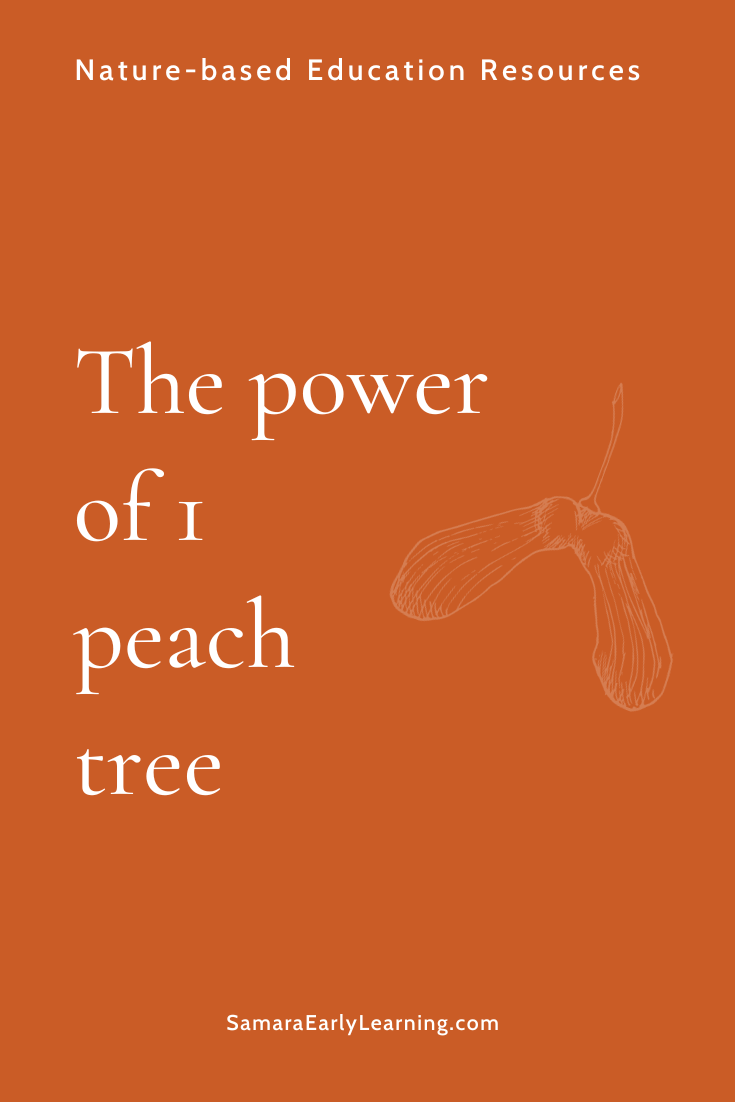
The power of 1 peach tree
A home provider recently shared this story with me about the peach tree in her backyard. She went on to describe the pure joy the children experienced in eating the peaches they had watched for so long, and I want to share it with you now.
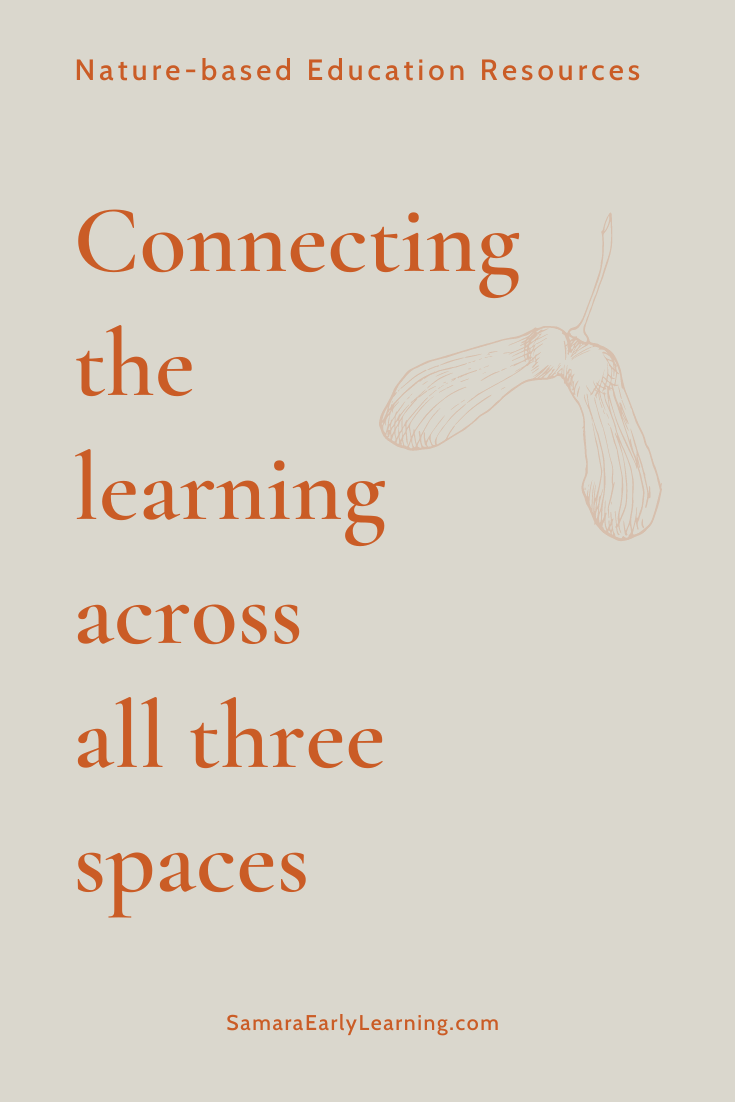
Connecting the learning across all three spaces
You’ve heard me talk about the three spaces of the Inside, Outside, and Beyond. While the spaces themselves are important, what brings nature-based pedagogy to life is how we use those spaces.
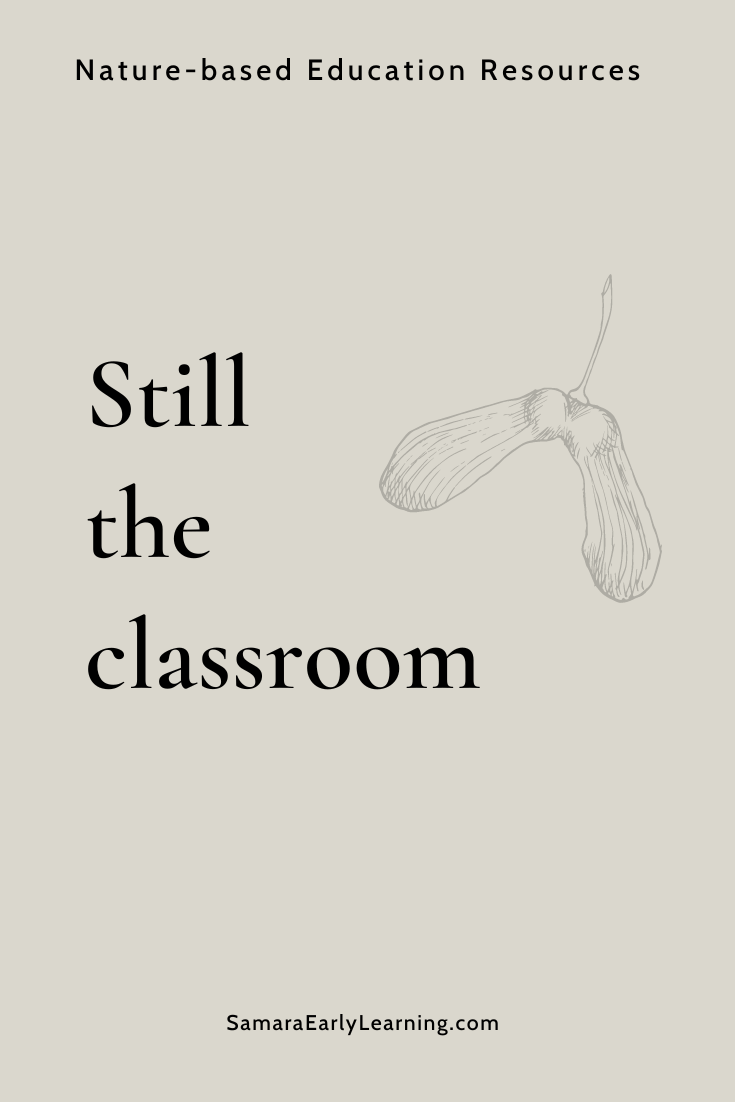
Still the classroom
By considering the types of play opportunities available, we can shift toward the outdoor play space truly serving as an extension of the classroom where teachers are as engaged in supporting children’s play as they are indoors.
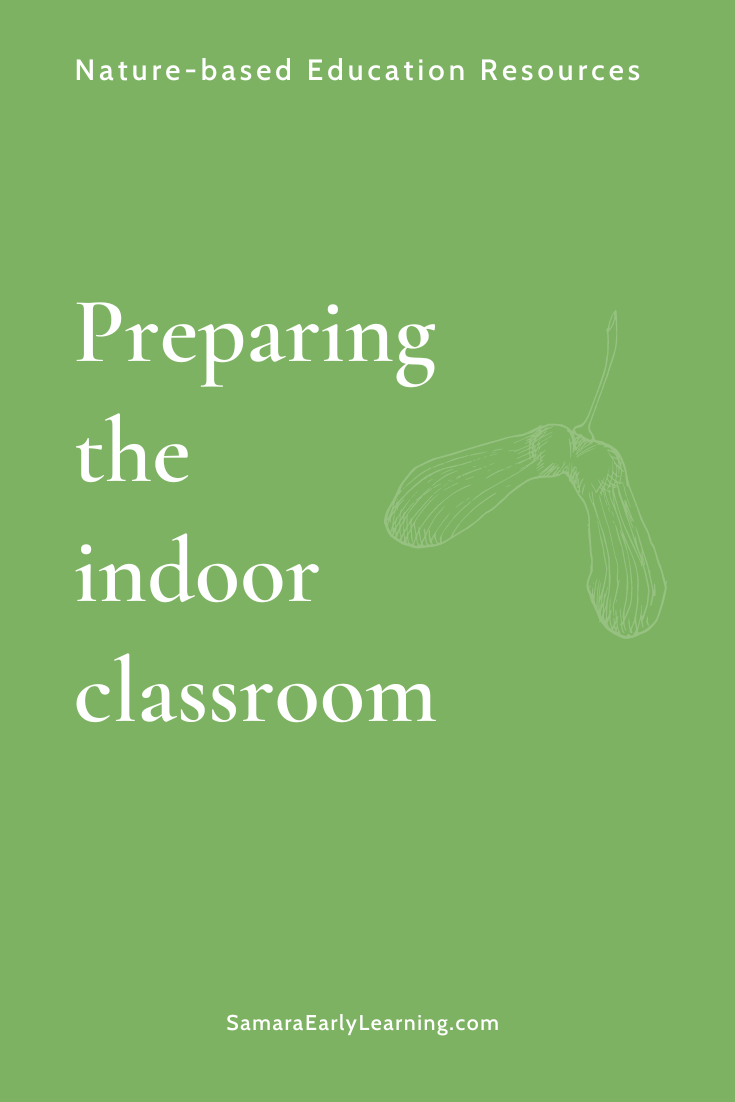
Preparing the indoor classroom
The start of the school year is typically when we tend to purchase the most consumable supplies, equipment, toys for our indoor classroom space. I want you to maximize your money by being intentional about the materials you choose so they encourage deep learning and hopefully learning with nature.
